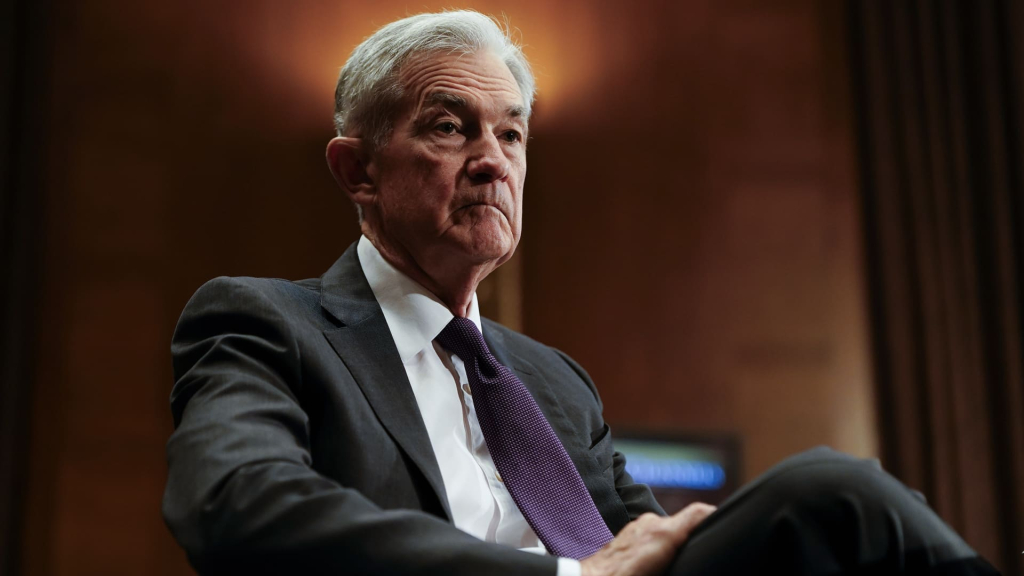This week, Federal Reserve Chair Jerome Powell managed to navigate two hearings on Capitol Hill with relative ease, but he now faces a larger challenge: the looming possibility of President Donald Trump undermining his position by selecting a candidate to lead the central bank next year.
As Powell answered questions before the Senate Banking Committee on Wednesday, exchanging pleasantries with lawmakers, Trump was attending the NATO summit in The Hague, making sharp remarks about a man he had originally nominated for the Fed chairmanship nearly eight years ago.
“I think he’s terrible,” Trump stated during a news conference when asked about his views on the next head of the Federal Reserve. He further criticized Powell, calling him “a very average mentally person” with “a low IQ for what he does” and “a very political guy.”
“I think he is a very stupid person, actually,” Trump added.
While Trump’s derogatory comments are not new, their current context hints at possible forthcoming actions regarding Powell’s tenure.
Potential candidates
In light of Trump’s fierce criticism, speculation has emerged on Wall Street regarding the potential appointment of a “shadow chair,” an individual who could act as a central bank provocateur until Powell’s term concludes in May 2026.
This chatter has begun to affect financial markets: On Thursday, traders shifted their expectations toward potential interest rate cuts, now assigning nearly a 60% probability to three reductions this year, compared to a previous strong likelihood of just two. Data from CME Group indicates that Treasury yields dipped significantly, particularly at the shorter end of the curve, where the Federal Reserve exerts considerable influence. The U.S. dollar also saw a steep decline against other currencies.
Trump confirmed he is considering a shortlist of potential successors to Powell, mentioning he has narrowed it down to “three or four people,” though he refrained from disclosing any names.
The list of contenders has become somewhat familiar. It includes Treasury Secretary Scott Bessent, National Economic Council Director Kevin Hassett, former Federal Reserve Governor Kevin Warsh, and Christopher Waller, who is seen as a dark horse candidate. Waller, a Trump appointee currently serving as a governor, has recently supported lower interest rates.
Despite speculation positioning Bessent as a front-runner, sources close to Trump indicate that this may not be the case. Bessent has publicly stated he is not interested in the role, although that stance could shift if Trump were to formally ask him.
An evening report from The Wall Street Journal revealed that former World Bank President David Malpass is also being considered for the Fed chair position. This report suggested that Trump might expedite the selection process to sway interest rate policies.
White House officials have not commented beyond Trump’s statements during the news conference.
An active Fed
Trump’s ambition to appoint a new Fed chair encounters several obstacles. Currently, there are no vacant positions on the board, although Governor Adriana Kugler’s term will end in January 2026. While Powell’s term as governor does not expire until 2028, the chair position is set to end next year.
Greg Valliere, chief strategist at AGF Perspectives, noted on Thursday that Trump’s strategy could face constitutional challenges and may politicize the Federal Reserve for several months until stability can be re-established by next May. “The damage to the Fed’s independence would be considerable if Trump becomes a monetary back-seat driver, second-guessing Fed policies this fall,” he remarked.
The ongoing tensions between Trump and Powell arise amid a crucial period for the central bank.
In recent days, the Federal Reserve has implemented significant changes in banking practices, including the removal of “reputational risk” as a criterion for bank exams—an apparent response to Trump’s concerns over politically motivated de-banking—and the easing of reserve capital requirements for systemically important banks. This latter measure was advocated by Vice Chair for Supervision Michelle Bowman, another Trump appointee but considered only an outside contender for the “shadow chair.”
Nevertheless, Trump’s primary grievance—Powell’s resistance to lowering interest rates—continues to be a major contention point.
During a Thursday interview with Finance Newso, Chicago Fed President Austan Goolsbee emphasized that political pressures would not influence the Federal Open Market Committee (FOMC) decisions, nor would the appointment of a shadow chair. “That would have no effect on the FOMC itself,” Goolsbee asserted. “Just examine the minutes and transcripts. You can see, word for word, what the rationales are for making decisions, and they’re not about elections and they’re not about partisan politics.”


























